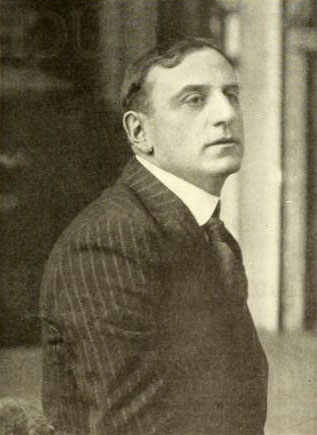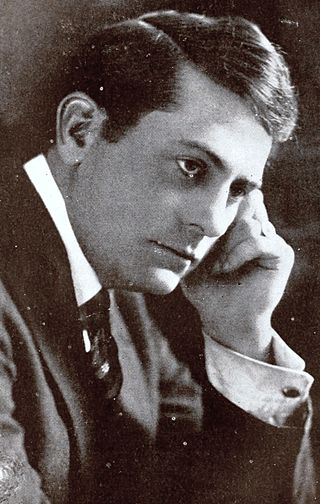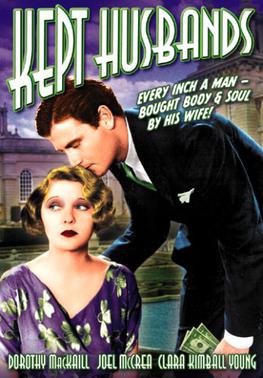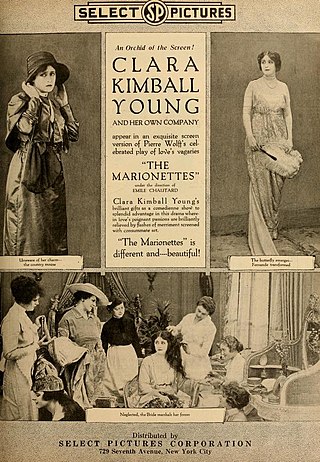
Maurice Félix Thomas, known as Maurice Tourneur, was a French film director and screenwriter.

The New York Hat is a silent short film which was released in 1912, directed by D. W. Griffith from a screenplay by Anita Loos, and starring Mary Pickford, Lionel Barrymore, and Lillian Gish.

Edwin August Phillip von der Butz was an American actor, director, and screenwriter of the silent era.

So Near, Yet So Far is a 1912 American silent drama film directed by D. W. Griffith. Prints of the film survive in the Museum of Modern Art film archive.

The Woman of Bronze is a 1923 American silent drama film directed by King Vidor and distributed through Metro Pictures. It is based on a 1920 Broadway play by Henry Kistemaeckers which starred Margaret Anglin, John Halliday, and Mary Fowler. The film version is considered to be lost.

Edward Marshall Kimball was an American male actor of the silent era. He appeared in more than 60 films between 1912 and 1936. Like many older actors of the Victorian and Edwardian eras, he enjoyed a varied stage career on and off Broadway before entering the silent films.
Michael Morton was an English dramatist in the early 20th century.

Mae Costello was an American stage and film actress of the early twentieth-century.

The Yellow Ticket is a 1931 pre-Code American drama film based on the 1914 play of the same name by Michael Morton, produced by the Fox Film Corporation, directed by Raoul Walsh, and starring Elissa Landi, Lionel Barrymore and Laurence Olivier. Boris Karloff appears briefly in a small supporting role. The picture is also a noteworthy example of productions from the pre-Code era in that it includes brief nudity.

Florence Reed was an American stage and film actress. She is remembered for several outstanding stage productions, including The Shanghai Gesture, The Lullaby, The Yellow Ticket and The Wanderer. Her best remembered movie role was as Miss Havisham in the 1934 production of Great Expectations. In this version, however, Miss Havisham was changed from a completely insane woman to an eccentric, who did not wear her wedding veil constantly, and who dies peacefully rather than as a result of suffering burns in a fire. In the 1950s, Reed performed in several early television shows, such as The Philco Television Playhouse, Kraft Television Theatre and The United States Steel Hour. She is a member of the American Theater Hall of Fame.

Kept Husbands is a 1931 American pre-Code drama film directed by Lloyd Bacon, starring Dorothy Mackaill and Joel McCrea, with major supporting roles filled by Robert McWade, Florence Roberts and Mary Carr. The original story was written by the film's associate producer, Louis Sarecky, and adapted for the screen by Forrest Halsey and Alfred Jackson. Although primarily a drama, the film has many comedic touches to it. The film centers around the class struggles and stereotypes between the working class and the wealthy, which was particularly striking during the Depression era when this film was made. The film also points out the stereotypical gender roles which were prevalent at that time.

Mid-Channel is a 1920 American silent drama film based on the 1909 play of the same name written by Sir Arthur Wing Pinero. The film was produced and directed by Harry Garson and stars Clara Kimball Young. On Broadway the play starred Ethel Barrymore.

The Dictator is a 1915 American silent comedy film directed by Oscar Eagle and reputedly Edwin S. Porter. It was based on a play The Dictator by Richard Harding Davis and produced by Adolph Zukor and the Charles Frohman Company. John Barrymore stars in a role played on the stage by William Collier, Sr. whose company Barrymore had performed in this play. The film was rereleased on April 13, 1919 as part of the Paramount "Success Series" of their early screen successes. The story was refilmed in 1922 as The Dictator starring Wallace Reid. Today both films are lost.
Yellow ticket is a prostitute ID card in Russian Empire

The Yellow Ticket is a 1914 Broadway play by dramatist Michael Morton, which premiered at the Eltinge 42nd Street Theatre in Manhattan on January 20, 1914.

The Yellow Ticket is a 1918 American silent drama film directed by William Parke and starring Fannie Ward. It is based on Michael Morton's 1914 play The Yellow Ticket. This screen adaptation of the play is currently classified as a lost film.

The Marionettes is a 1918 American silent comedy film directed by Émile Chautard and starring Clara Kimball Young, Nigel Barrie, and Alec B. Francis.

The Claw is a 1918 American silent drama film directed by Robert G. Vignola and starring Clara Kimball Young, Milton Sills, and Jack Holt.

The Hands of Nara is a 1922 American silent drama film directed by Harry Garson and starring Clara Kimball Young, Elliott Dexter and Vernon Steele. It is based on the novel of the same title by Richard Washburn Child.

Pauline Garrette Kimball, also called as Mrs. E. M. Kimball, was an American actress of the silent era. She acted in a number of movies in the silent era including the The Deep Purple (1915), The Yellow Passport (1916) and The Feast of Life (1916). She also performed in comic opera such as Princess Ida.

















